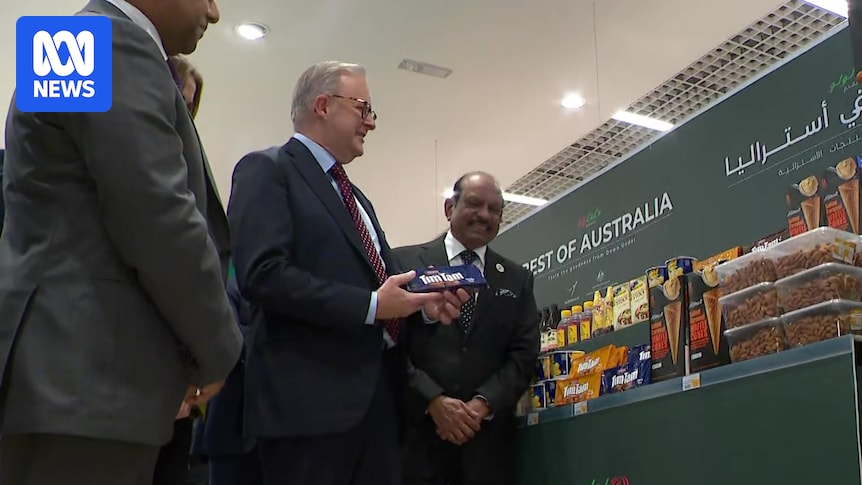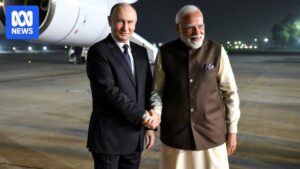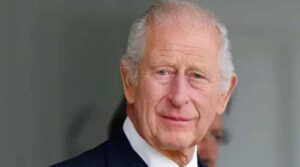
Prime Minister Anthony Albanese has extended an invitation to the Emirati retail behemoth, LuLu Group, to establish its presence in Australia, aiming to challenge the dominance of supermarket giants Coles and Woolworths. The invitation was confirmed during Albanese’s visit to the United Arab Emirates, coinciding with the implementation of a free trade agreement between the two nations.
Speaking to LuLu Hypermarket chairman Yusuff Ali, Albanese expressed his support for the group’s entry into the Australian market. “One of the great things about the [LuLu Group] chairman’s company, there are 300 supermarkets just like this one, I have encouraged him to come to Australia as well,” he stated. “We need more competition in the Australian supermarket sector, and we have had a little discussion about that.”
LuLu Group’s Global Reach
LuLu Hypermarket, a major player in the Middle Eastern retail sector, boasts over 250 outlets across the Gulf states and other regions. The group’s potential entry into Australia could bring significant changes to the local retail landscape. “This company is big enough to have direct relations with [Australian] producers, whether they be mango producers, the orange producers, the meat producers that the chairman met in Mudgee that are still providing Halal-certified meat into this market,” Albanese remarked.
The free trade agreement between Australia and the UAE is set to eliminate tariffs on nearly all Australian exports to the UAE, while also encouraging increased investment from the UAE’s substantial sovereign wealth funds into Australia.
Challenges in the Australian Supermarket Sector
The Australian supermarket sector has faced scrutiny over the past few years, with rising product prices exacerbating other cost of living pressures. Critics have long argued that the market is overly concentrated, with Coles and Woolworths controlling a significant share, leading to a lack of competition and inflated prices.
The previous government proposed break-up powers as a potential solution, which would allow authorities to force Coles and Woolworths to divest parts of their businesses if found to be uncompetitive. This proposal, supported by the Greens, was dismissed by Albanese, who stated last year that Australia was “not the old Soviet Union” and rejected the idea of forcibly breaking up the supermarket giants.
Government’s Approach to Increasing Competition
Instead of pursuing break-up powers, the Albanese government has focused on increasing competition by consulting with states and territories to revise zoning and planning laws. This initiative aims to open up more sites for new stores, addressing concerns from foreign competitors who claim existing chains have blocked market entry by acquiring potential sites without developing them.
In March, the Australian Competition and Consumer Commission (ACCC) released a review indicating that Coles and Woolworths had “limited incentive” to compete on price due to their market dominance. However, the review did not conclude that recent price increases were excessive.
“Despite the findings, the prime minister committed to investigating an ‘excessive pricing regime’ to be enforced by the competition watchdog, targeting supermarkets found guilty of price gouging.”
Looking Ahead
The potential entry of LuLu Hypermarket into the Australian market could serve as a catalyst for increased competition, potentially benefiting consumers through more competitive pricing and diverse product offerings. With the free trade agreement facilitating smoother economic exchanges, the stage is set for significant developments in the retail sector.
As the government continues to explore avenues for enhancing competition, the coming months will reveal whether LuLu Group will indeed make its mark on Australian shores, and how this will impact the existing retail giants and the broader market dynamics.





